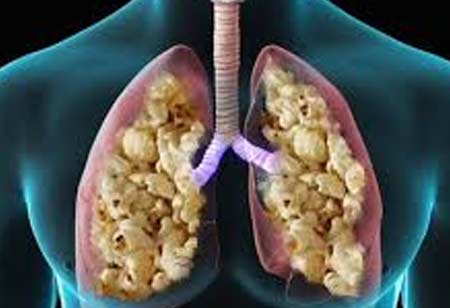Popcorn Lung and its Causes: A Closer Look
“Popcorn lung" is a colloquial term for bronchiolitis obliterans, a condition characterized by damage

By
Medical Care Review | Tuesday, July 11, 2023
Stay on top of your health and well-being with exclusive feature stories on the top medical clinics and treatment centers, expert insights and the latest news delivered straight to your inbox. Subscribe today.
Bronchiolitis obliterans, usually called "popcorn lung," is a medical condition marked by damage to the smallest airways in the lungs. This contributes to symptoms such as coughing and shortness of breath. This article provides an in-depth look at popcorn lung, including its causes.
Fremont, CA: “Popcorn lung" is a colloquial term for bronchiolitis obliterans, a condition characterized by damage to the smallest airways of the lungs, leading to symptoms such as coughing and loss of breath. While exposure to chemicals used in flavoring microwave popcorn is a common cause, other chemicals and lung diseases can also result in popcorn lung.
Your blood collects oxygen in your lungs before distributing it to cells throughout your body. As you inhale, air enters your lungs through the windpipe or trachea—the windpipe branches into two tubes known as bronchi, which extend to your left and right lungs. Within your lungs, these tubes continue to divide, resembling the branches of a tree. The tiniest branches are referred to as bronchioles, which terminate in minuscule air sacs called alveoli. It is in the alveoli where your blood absorbs the oxygen.
When an individual experiences "popcorn lung," the minuscule air passages become irritated and inflamed, forming scar tissue constricting their width. Consequently, this impedes the individual's ability to intake sufficient air adequately.
Causes of Popcorn Lung
Diacetyl is the chemical responsible for this condition's nickname. After discovering that workers at a microwave popcorn packaging factory were more prone to bronchiolitis obliterans, certain companies ceased using diacetyl as a flavoring agent. However, it is still utilized in certain electronic cigarette flavors within the United States. Numerous e-cigarette manufacturers claim to abstain from incorporating this chemical in their products, and its usage in e-cigarettes is prohibited in Europe.
Acetaldehyde, a substance present in the smoke of marijuana and electronic cigarettes, is another frequent factor that can harm the mucous membranes of the mouth, throat, and stomach.
Additional substances that have the potential to induce popcorn lung are as follows:
● Metal oxide fumes are frequently produced during welding processes.
● Formaldehyde is a carcinogenic compound utilized in certain adhesives and construction materials.
● Sulfur dioxide is a pollutant emitted through the combustion of fossil fuels.
● Ammonia.
● Chlorine.
● Nitrogen oxides.
● Hydrochloric acid.
● Sulfur mustard is a chemical weapon commonly referred to as "mustard gas."
Usually, bronchiolitis obliterans may occur following a severe respiratory illness, such as pneumonia or bronchitis. Additionally, individuals with rheumatoid arthritis may develop popcorn lung as a consequence of their condition.
If you have undergone a lung transplant or a stem cell transplant, there is a possibility of acquiring this condition if your body rejects the newly transplanted organ. It is worth noting that bronchiolitis obliterans is the leading cause of mortality among individuals who have received lung transplants.







